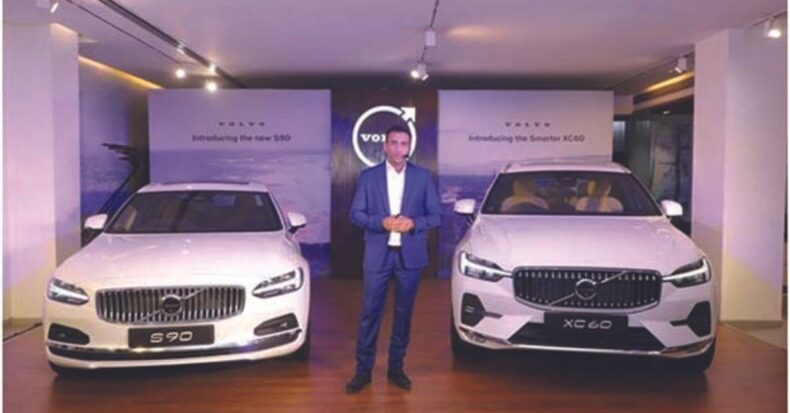At present, both S90 and XC60 are available as diesel variants. As the demand for petrol cars increases for various reasons, Volvo will discontinue the diesel variants soon. The Indian automobile industry has likewise taken the first step toward an autonomous future. With the appropriate combination of such hype and incentives, we may see Electric Vehicles becoming more widespread.
Volvo is a Swedish automobile manufacturer. On Tuesday, Volvo introduced two new mild gasoline hybrid cars: the luxury sedan S90 and the medium-sized luxury SUV XC60.
The Gujarat market. According to Prakash Mishra, sales manager, both automobiles in Gujarat (excluding dealerships) are Rs 61.90 apiece.
Indian Volvo vehicle. Volvo went on to say that these new products are in keeping with the company’s aim of having a complete gasoline portfolio by the end of 2021.
The gasoline mild-hybrid technology consists of a gasoline engine and a battery pack. There is no need for external charging. This technology boosts fuel efficiency and enhances driving pleasure.
Gujarat is one of the top five markets for Volvo. Yes, we are confident that these new models have received a positive reaction.
Both the S90 and XC60 are currently available in diesel form. According to Mishra, Volvo intends to phase out diesel vehicles soon as the demand for gasoline vehicles rises for various reasons.
One of the primary reasons is that the price differential between gasoline and diesel is shrinking. This is because both fuels are now selling for more than 100 rupees.
India. Furthermore, diesel cars would be scrapped in cities like Delhi within the next ten years, and Mishra estimates that gasoline-powered automobiles have a 15-year lifetime.
Volvo’s whole lineup will be converted to gasoline. The XC90 will be officially unveiled in the next month. Following that, we will phase out the diesel model.
For several reasons, people will choose the gasoline model. “Gasoline automobiles will also be more valuable on resale,” Mishra stated.
Mishra described the deployment of this new gasoline mild-hybrid technology as a pathway to electric automobiles.
Electricity is the future. However, the switch from conventional fuel to electricity does not occur overnight. So we’re heading in the correct direction.
The XC40, the world’s first all-electric vehicle, will be launched in India next year. Then, each year, one electric car is introduced.” Mishra also stated.
Electric Vehicle Future in India

The Indian government has high ideals for charging stations to be distributed equitably, but obstacles persist.
India aspires to be a worldwide electric vehicle (EV) giant, but several obstacles stand in the way. Much depends on the country’s plan to implement public, private, and home charging solutions that must serve drivers in large cities and rural areas.
Estimates vary, but research has revealed that just 1,300 to 1,800 public chargers are accessible across the country, much below the charger-per-vehicle ratio seen in other markets.
Furthermore, only about 5% of stations are considered to have rapid chargers. The problem is simple: many drivers will not operate an electric vehicle without a sufficient density of charging stations.
Charging infrastructure is still in its infancy in our nation,” says Gaurav Batra, Global Advanced Manufacturing & Mobility Analyst head at EY GDS. “It’s still in its early stages, but there has been some improvement.
The Indian automobile industry has likewise taken the first step toward an autonomous future. With the appropriate combination of such hype and incentives, we may see EVs becoming more widespread.
It wasn’t long ago that there were doubts about the practicality of autonomous and electric vehicles in India, particularly in light of inadequate infrastructure and a lack of favorable legislation.
However, things appear to be shifting quickly right now. The year 2021 seems to be when the autonomous vehicles and electric automobiles market begin to rise.
Despite 2020 being the year when worldwide growth in the EV industry halted, owing partly to the pandemic-induced lockdown, there are some grounds for optimism.
Regardless of its lesser part of the Indian autonomous and electric vehicles market, the government is spending big on the industry.













